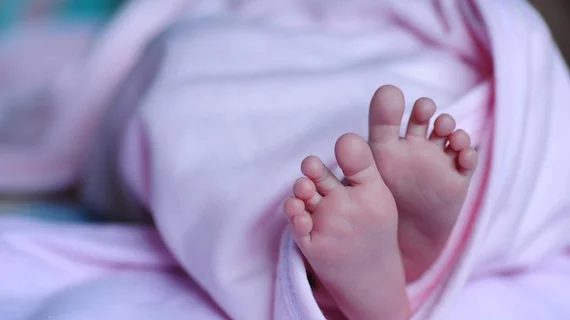NIH awards $725K grant to detect neonatal brain injury using photoacoustic imaging
The National Institutes of Health has awarded a Wayne State University professor a grant to better detect neonatal brain injury through advanced imaging.
Biomedical engineering professor, Kamran Avanaki, PhD, will use the two-year, $725,000 award to develop a point-of-care, 3D neonatal photoacoustic tomography system to help measure hypoxic-ischemic brain injury in newborns. The injury occurs from a lack of oxygen in the brain near the time of birth and can lead to severe consequences such as cerebral palsy.
“3D-nPAT is safer and less costly than current, clinically used neuroimaging methods,” Avanaki said in a statement. “It will allow for earlier treatment, which could circumvent neural complications and improve functional outcomes from cerebral palsy and cognitive impairments.”
According to Avanaki, the approach will also do away with the need for sedation, radiation or radionuclides.
This grant is the most recent in a series of funding awarded to Avanaki and collaborators at the University of Michigan’s Department of Biomedical Engineering and Department of Neonatology at Harvard to continue developing their imaging technology. Last spring he received a four-year, $1.5 million grant for the project.
"The proposed 3D-nPAT instrument will provide neonatologists with an affordable, fast, portable and noninvasive functional imaging tool to map hypoxic-ischemic injuries to the neonatal brain that currently requires the use of multiple specialized systems,” Avanaki added. “With this grant and the earlier R01, we are planning to revolutionize neonatal brain imaging management.”

